AUST ALUMNI COMMUNITY
AUST ALUMNI COMMUNITY
Welcome to AUST Alumni Community, where our graduates are making a difference in the world and leaving a lasting impact on society. As a leading institution of higher education in the region, AUST has a proud tradition of producing graduates who are leaders and innovators in their respective fields. Our alumni community is a testament to this tradition, At AUST, we are committed to providing our students with a world-class education that prepares them for success in their chosen careers. We believe that this commitment to excellence is reflected in the accomplishments and contributions of our alumni. Our graduates are leaders and innovators who are making a difference in their communities and beyond.
Here we highlight some of the notable achievements and contributions of our alumni, and celebrate the ways in which they are making a positive impact in their fields and on the world. We hope that these stories will serve as a source of inspiration and motivation for current and future AUST students, and that they will highlight the important role that education and hard work can play in achieving success and making a difference in the world. We are proud of their achievements and contributions, and we look forward to continuing to support and celebrate the successes of our alumni for years to come.
Here are some of the many inspiring success stories of our AUST alumni:
Dr. Nelson Y. Dzade
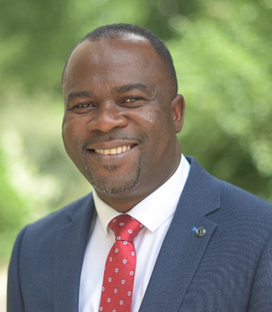
Dr. Dzade graduated in 2009 with an MSc in Materials Science and is currently working as an Assistant Professor of Energy & Mineral Engineering at Pennsylvania State in the USA.
After his Master's Degree in Materials Science from the African University of Science and Technology in 2009, Dr. Dzade received his Ph.D. in Computational Materials Chemistry (2014) from University College London (UCL), UK. He was subsequently a postdoctoral researcher (2014-2017) at Utrecht University, The Netherlands. In 2018, he received the UK’s prestigious Engineering and Physical Sciences Research Council (EPSRC) Innovation Fellowship, which was hosted at the School of Chemistry, Cardiff University, UK. Currently, Dr. Nelson Dzade is an Assistant Professor of Energy and Mineral Engineering in the John and Willie Leone Family Department of Energy and Mineral Engineering at the Pennsylvania State University, USA. He is also an affiliate to Penn State’s Materials Research Institute (MRI), Institutes of Energy and the Environment (IEE), Institute for Computational and Data Sciences (ICDS), and Alliance for Education, Science, Engineering and Design with Africa (AESEDA). Dr Dzade leads the Materials and Minerals Theory Group, which specializes in the development and application of advanced theoretical methods to unravel structure-property-performance relationships in solid-state materials. His group harnesses the predictive capacity of first-principles calculations to gain a detailed understanding of the fundamental science needed to rationally design and engineer new functional materials with unparalleled performance in several renewable energy technologies such as photovoltaics, heterogeneous catalysis, and high-capacity batteries. His research work has been published extensively (>100 publications) in several high-impact scientific journals and communicated as invited/keynote talks at several high-profile international conferences. Dr Dzade is also involved in training, research strengthening, and capacity-building efforts in several African Institutions including Kwame Nkrumah University of Science and Technology (KNUST), Ghana, University of Botswana (UB), University of Namibia (UNAM), the African University of Science and Technology (AUST), Nigeria, University of Limpopo (UL), South Africa. He is currently a Visiting Assistant Professor to African University of Science and Technology (AUST), Nigeria, where he teaches Materials Modeling and Simulation course and mentors graduate students.
Dr Dzade has won a number of competitive academic and industrial scholarships and prizes including an Overseas Research Scholarship from University College London, a British Petroleum Research Fellowship, a World Bank Scholarship; a Government of India Scholarship, the DUO-India Professor Fellowship Award, and EPSRC Innovation Fellowship Award.
Engr. Festus Ogbonna
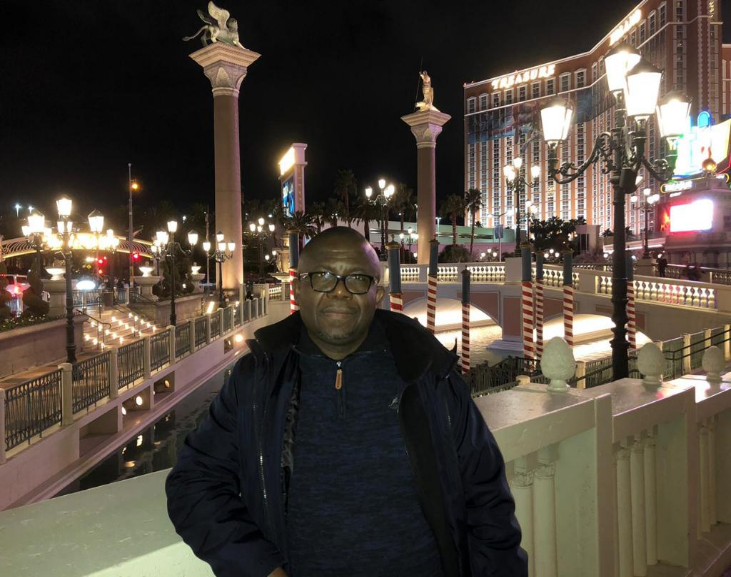
Engr. Festus Ogbonna is the pioneer graduate of Petroleum Engineering from AUST. After leaving AUST, he has grown to become a seasoned Petroleum Reservoir Engineer with more than 13 years of experience, out of which he spent 10+ years with Shell Petroleum Development Company of Nigeria Limited. Currently, he works with the Shallow Water & Offshore (SWO) studies team, where he plays a critical and active role in maturing growth opportunities critical to meeting Shell’s strategic gas supply obligations in NLNG Trains T1-T6-T7. Festus has facilitated the delivery of more than 30 integrated development projects in a collaborative and multi-disciplinary setting. He is passionate about project commerciality, champions value-over-volume initiatives, and approaches team delivery with a learner’s mindset.
Engr. Festus Ogbonna holds a B.Engr. in Mechanical Engineering, an M.Sc. in Petroleum Engineering, and a Postgraduate Dip.in Business Administration (Management). He is currently pursuing a Ph.D. in Oil and Gas Engineering at the Memorial University of Newfoundland (MUN), Canada under Dr. Steve Butt. He is a registered Engineer with Council for the Regulation of Engineering in Nigeria (COREN).
Before joining AUST, he was working as a Branch Manager with Ecobank Nigeria Plc before hearing about AUST. He sacrificed the Managerial job to join the MSc. Petroleum Engineering pioneer class in June 2008 after a successful response to an advert by AUST via Thisday newspaper. His career switch was motivated by a quest for overcoming higher challenges and the quality of education offered by AUST.
Post-AUST, Engr. Festus Ogbonna enrolled with Shell as a Postgraduate Research Intern (Reservoir Engineer) and completed the 1-year research programme. He then moved on to work as a full-time Reservoir Engineer at the Niger Delta Petroleum Resources (NDPR), PHC, for 2 years. He later returned to Shell to work full-time as a Reservoir Engineer, where he recently received a 10-year service award.
Engr. Festus Ogbonna's key achievements at Shell include: Matured the Epu Deep Prospect that led to the largest discovery in Royal Dutch Shell (RDS) in 2018 (Epu-005 well) and a Special Recognition Award (SRA). He is a two-time winner of GM & Manager’s awards in 2022 for demonstrating continuous Improvement, Learner Mindset, and Maximize Performance behaviors through cross-functional collaboration and integration during project delivery. He is also a four-time recipient of Recognition from Development & Subsurface Capability Leadership Team in 2022 for the 1stdeployment of Reservoir Engineering Workflow (REWF) for subsurface benchmarking as well as End-to-End (E2E) value estimation tools in Shell Companies in Nigeria (SCiN).
Engr. Festus Ogbonna is married since 2007 and blessed with three kids. He plays soccer and likes working out in the gym. He also engages in mentoring.
Dr. Ifeyinwa Ijeoma Obianyo
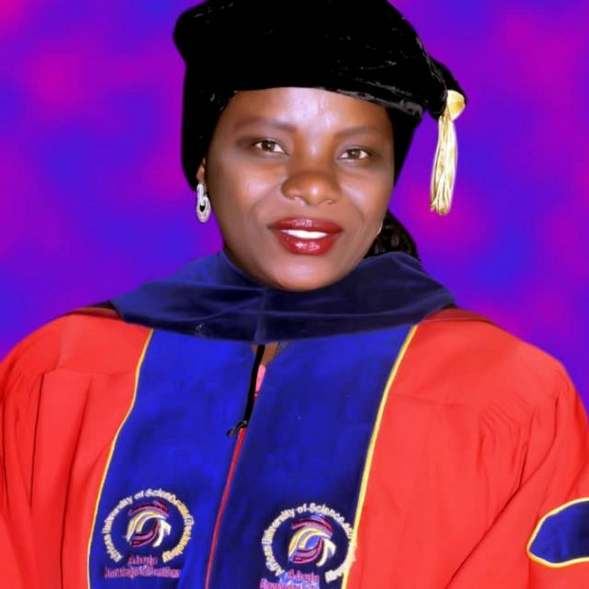
Dr Ifeyinwa Ijeoma Obianyo is a Resident Faculty and Ag. Head of Department, Civil Engineering, African University of Science and Technology, Abuja.
Research Focus: Eco-friendly Building and Construction Materials, Low-carbon, and Sustainable Concrete, Soil Stabilization, Waste Valorization for Construction Applications, Statistical Modelling of Strength of Materials, Mechanical Behaviour of Building and Construction Materials.
Ifeyinwa holds a B.Eng. in Civil Engineering from the University of Nigeria, Nsukka (2010), an M.Sc., and a PhD in Materials Science and Engineering, from the African University of Science and Technology (AUST), Abuja. She started her career in the Construction industry where she worked as Assistant Project Supervisor, Quality Control Supervisor, and Project Supervisor. Her desire to impact her society through teaching, STEM outreaches, and research led her to further her studies and became a Resident Faculty and researcher at AUST, where she has taught courses such as Mechanical Behaviour of Materials, Engineering Drawing, General Engineering Laboratory and has co-supervised postgraduate student. She is a STEM advocate and has participated in facilitating STEM projects as well as STEM outreach in Secondary Schools.
She was a World Bank-Pan African Materials Institute (Academic Centre of Excellence) scholar from 2016-2020. She also won RILEM PhD. Grant for RILEM International Conference held at Sheffield University, UK (https://www.rilem.net/news/416). She is a member of the International Union of Laboratories and Experts in Construction Materials, Systems, and Structures (RILEM), the Organization of Women in Science in the Developing World (OWSD), the Materials Research Society (MRS), and the African Materials Research Society (AMRS). She is a passionate teacher and a mentor to young people, especially girls. She is an author of 28 peer-reviewed scientific articles in reputable journals and a Reviewer of scientific journal papers for several Scopus-indexed journals.
One of her pertinent goals is to see more girls take up STEM courses. Her vision is to ensure that the department of Civil Engineering offers engineering education and training that align with the realization of national needs and aspirations in terms of industrial development and the provision of sustainable solutions to societal infrastructural needs.
The AUST community appreciates your immense contribution to the university and the world at large.
Dr. Anye Vitalis
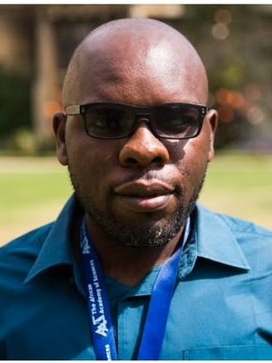
Head of Department, Materials Science and Engineering, African University of Science and Technology, Abuja, Nigeria and Coordinator AUSTInspire Business Incubation Center.
Field:Organic Electronics – Organic Photovoltaics (OPVs) and Light Emitting Devices(OLEDs); Perovskite-based solar cells and LEDs; Nanomechanics of structures relevant to OPVs and OLEDs; Finite Element Analysis of thin film structures relevant to OPVs and OLEDs.
Vitalis holds a BSc (Hons) in Physics from the University of Buea, Buea, Cameroon (2004), an MSc (2011) and a PhD (2015) in Materials Science and Engineering from African University of Science and Technology (AUST), Abuja, Nigeria.
He has grown in his career in teaching and research in the field of energy materials in the department of Materials Science and Engineering at AUST and supervised various MSc and PhD dissertations in the department. He previously served as a full time faculty member, senior lecturer and head of Department of Electrical/Electronics Engineering of the Faculty of Engineering at Nile University of Nigeria, Abuja, Nigeria. In this faculty, he taught various courses and supervised both undergraduate and postgraduate students in the departments of Civil Engineering and Electrical-Electronics Engineering.
He was a World Bank-Step B/ African Development Bank (AfDB) and African Capacity Building Foundation (ACBF) scholar at AUST from 2010 to 2015. He is a member of Materials Research Society, African Materials Research Society, Materials Society of Nigeria, IEEE and Affiliate member of the African Academy of Science (AAS). His research interests are in the field of organic optoelectronic structures-the effect of pressure and adhesion on their performance; nanomechanics with the use of Finite Element Analysis (FEA), for the modeling and simulation of nanostructures and thin films; and hybrid organic-inorganic solar cells and light emitting devices based on perovskite structures. To date, he has over 30 scientific articles in reputable peer-reviewed journals. He has been involved in several outreach programs geared at encouraging secondary school kids, mainly girls to pursue Science, Technology, Engineering and Mathematics careers and also participated in various interventions in the use of 3D printing technology for the production of personal protective equipment in response to the COVID-19 pandemic. His vision is to see the department of MSE & AUSTInspire emerge as a centre of excellence for teaching, learning, research and innovation on various aspects of materials development for sustainable impact on the African continent.
ADEKUNLE OPAWALE; R&D /Facilities Engineer, FMC Technology, Netherlands
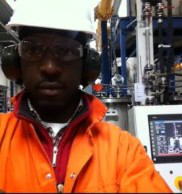
Following a Bachelor's degree in Chemical Engineering, Adekunle Opawale came to AUST in 2009. As one of the top students in his class, he was offered an AUST scholarship to study Petroleum Engineering. While studying at AUST, Adekunle's conducted research work on crude oil emulsion. This was done under the supervision of Professor Samuel Osisanya. His work led to the development of a smart computational tool (EMULS-K), for troubleshooting emulsion problems in producingoilfields. After graduating from AUST with an M.Sc. in Petroleum Engineering in 2010, Adekunle was selected as AUST's First Innovation Fellow in 2011. With the sponsorship from the African Development Bank (AfDB), Adekunle was funded to present papers at several international oil and gas conferences. These included: the SPE Production Operation Symposium in Oklahoma, USA; the Offshore Technology Conference in Texas, USA, and the SPE Nigeria International Conference in Abuja, Nigeria. Adekunle also participated in the World Bank-STEP B/AUST/SHESTCO/Princeton research team that studied the potential application of bacteria to the cleaning of oil spills. Due to his consistent creativity, Adekunle was hired directly from AUST by FMC Technologies in the Netherlands. FMC Technologies is an international oilfield technology provider. Since 2011, Adekunle has worked at FMC’s Separation Innovation & Research Centre in the Netherlands. In his current role, he develops separation technologies for sub-sea applications, offshore topsides and onshore operations. His work uses theoretical analysis, computational fluid dynamics and real-time experimental studies. He also currently manages the company’s Technology Innovation Initiative. In 2011, Opawale was honoured with an AUST Medal at AUST's third convocation. Opawale is a Nigerian.
